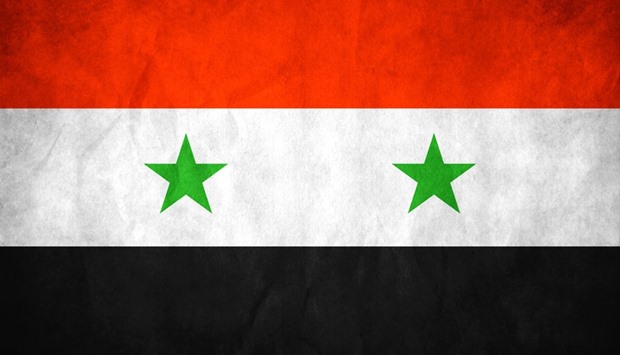Syrian children played under quiet skies yesterday as a fragile truce held, but their parents were waiting for much-needed food, fuel and medicine to enter the country’s besieged areas.
In the Shaar neighbourhood of rebel-held eastern Aleppo, children laughed as they ran through the streets, enjoying an opportunity to escape the confines of homes and bomb shelters.
One group played football under the remains of a destroyed bridge, while others pushed each other on swings.
In the Fardos neighbourhood of eastern Aleppo, 11-year-old Mohamed was playing with a plastic toy gun.
“I’ve been in the street since 11 this morning,” he said.
“The house is boring because I can’t watch television until 7pm (when the generators begin to work).”
“I miss toffee apples and cotton candy. We haven’t had them this Eid,” he said.
“And ice cream – we haven’t had ice cream for two weeks. No one in the area sells it any more because there’s no electricity.”
For Syria’s adults, the welcome quiet was tempered by anxiety about when the humanitarian aid promised under the Russian-US accord might finally arrive.
“The truce is good, but it’s not enough. We want food to come in,” said Abu Jamil, a resident of the Ansari neighbourhood in besieged eastern Aleppo.
“The situation is still bad as the markets are empty,” the 55-year-old said.
Some 250,000 people living in the ravaged east of Aleppo have been under government siege for most of the past two months, after the Syrian army seized the key Castello Road running from Turkey into the city.
Rebel forces briefly opened a new route into Aleppo in August, but the government sealed that off in early September, restoring a siege that has prompted shortages in the eastern
neighbourhoods.
The rebel-held part of the city has also come under frequent government fire, although yesterday residents were savouring a day out in the sun after a rare quiet night’s sleep.
Despite the calm, many markets remained closed because of lack of produce, with the few stalls still open displaying meagre offerings of aubergines, courgettes and a few herbs such as parsley.
“We saw on the television that aid would come in after 20 hours of the truce, but we haven’t seen anything,” said 23-year-old Mohamed Hashisho in eastern Aleppo’s Kallaseh district.
In the Old City of Aleppo, Mahrus Ismail was at a butcher’s shop with a sheep to be
slaughtered for Eid.
“I bought this sheep nearly a month ago... it weighed 40 kilos then,” he said.
“Today it weighs nearly 33 kilos because of the lack of fodder,” he added.
“I hope the truce will open the road, as we’ve heard, and that they can get some chicken in
because it’s my favourite food.”
The United Nations said yesterday that aid convoys could not begin moving until security was assured, and that the process of assessing the truce’s
durability was taking time.
No aid has entered eastern Aleppo since early July, and residents there are among hundreds of thousands of people living under sieges in Syria.
The US-Russian deal calls for the demilitarisation of the Castello Road route into Aleppo, and Russia has already deployed troops on the road to monitor
the area.
In the rebel-held town of Douma in Damascus province, under siege since 2013, doctors said they were hoping the deal would mean the arrival of much-need medical supplies.
“We’re waiting to fill up our warehouses with medicine and other essential materials that haven’t entered since we came under siege,” said Yasser al-Shami, head of a makeshift local hospital.
“We are waiting for essential medical supplies to enter for dialysis sessions,” added Abu Hamza, a technician in the local dialysis unit.
“There is nothing left of the last aid” that entered in
mid-June, he said.
“Any delay will have a negative effect on the health of the patients.”
In government-held western Aleppo, which is regularly targeted by rebel rocket fire, residents enjoyed the quiet of the morning and expressed hope that the truce would last.
The initial ceasefire is due to last 48 hours, and can be renewed every 48 hours after that for as long as it holds.
“I hope it will be serious. I hope I’ll no longer hear the cries of the wounded in the hospital,” said Alaa Jomaa, who abandoned his studies in economics to become a nurse during the war.
“It is heartrending to hear the cries every time we remove rocket
shrapnel from people’s bodies.
“Today, for the first time, I didn’t hear those cries.”

